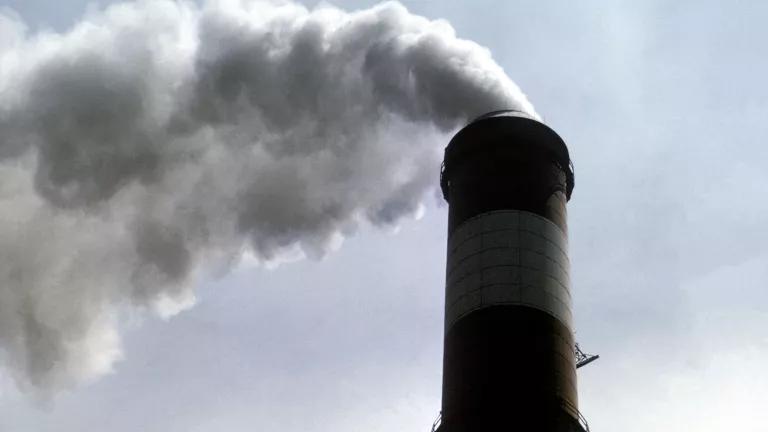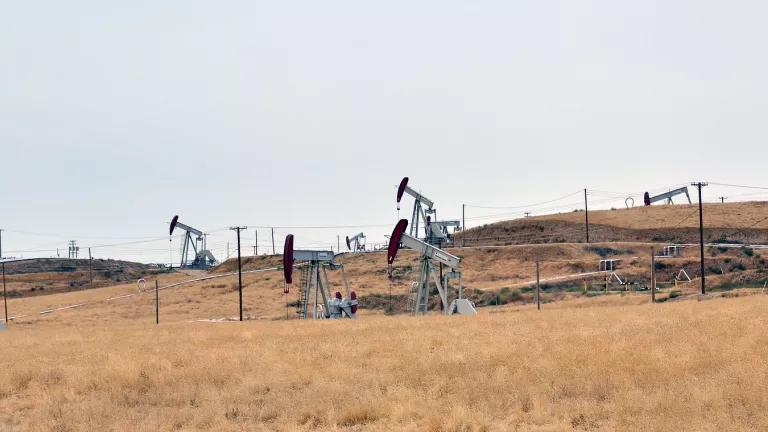Offshore Drilling Plan Shouldn’t Risk Communities and Coasts
The five-year offshore oil and gas leasing plan puts our coastal communities and oceans at risk for offshore oil that we don't even need.

Our coastal communities and marine environments cannot afford this offshore leasing plan.
The Trump administration in January released the most far-reaching offshore drilling plan ever proposed. Unprecedented in scope, the new plan proposes opening vast areas bordering nearly every coastal state to drilling and schedules 47 lease sales—the most of any Five-Year Program Plan in history.
This comes at a time when demand for offshore oil is decreasing—meaning that opening new areas to drilling puts our oceans and coastal communities at risk for oil that we don’t even need. NRDC describes the fundamental errors underlying the rationale for a new plan in our technical comments we are submitting to the Bureau of Ocean Energy Management today.
For the following reasons, the administration should not open any new areas of the Outer Continental Shelf to offshore drilling:
1. We don’t need this oil
According to the latest U.S. Energy Information Administration (EIA) Annual Energy Outlook (AEO 2018), the United States is poised to become a net oil exporter by 2029 without additional offshore oil leasing that puts coastal communities and marine ecosystems at risk. Global oil demand is projected by many to peak by 2030 and then begin to decline, largely due to fuel efficiency standards and alternatives like electric vehicles.
Not only do we not need this oil, but exploiting this public resource would harm—not benefit—coastal communities, the marine environment, and the public. The offshore leasing process is already uncompetitive, resulting in low lease bids and minimal returns to the public. Opening a much vaster area to leasing in such a short amount of time will further depress lease prices—essentially selling off our public resources at a steep discount.
2. Exploring for new oil is inconsistent with the need to address climate change
New offshore oil and gas exploration is fundamentally inconsistent with efforts to address climate change. We cannot meet our international obligations and avoid the worst impacts of climate change while at the same time exploiting new reserves.
Renewable energy, energy efficiency, and electric vehicles are viable alternatives to leasing of fossil fuels, and we should intensify our efforts to expand the use of them. The use of clean energy and transportation technologies has increased significantly in the past decade, providing clean sources of power and transportation while at the same time growing local economies, reducing climate change-causing emissions, and reducing our dependency on oil. We should focus on continuing to expand the use of renewable energy and transportation, and using energy more efficiently, rather than attempt to exploit new oil reserves.
3. New leasing puts important marine environments and coastal economies at risk
While proposing opening nearly all our coasts, the administration is attempting to roll back crucial safety measures that were adopted to prevent another catastrophic oil spill like the Deepwater Horizon from occurring. But our coastal areas are simply too important be exposed to a such a risky program.
For example, the U.S. Atlantic Ocean economy contributes roughly $92 billion to the country’s gross domestic product (GDP), more than 60 percent of which is from tourism, recreation, fishing, and seafood. These industries depend on a clean ocean, clean beaches, and abundant fish and wildlife. More than the economic value, the Atlantic is home to a vast array of wildlife, corals, fish and endangered species that should not be put at risk for oil industry profits.
The Pacific coast’s stunning natural beauty and abundant biodiversity is also a major driver of tourism and recreation, which significantly contribute to western coastal state economies. California is home to the United States’ largest and most comprehensive network of National Marine Sanctuaries, and Washington’s Olympic Coast National Marine Sanctuary attracts three million visitors annually.
Some of the most productive and pristine marine ecosystems on Earth are found in Alaska’s Arctic waters and coasts. If a spill were to occur in the late summer or early fall, the ocean could easily transition from open-water to 100% ice quickly, leaving the blowout to continue, unabated, throughout the long winter.
Oil spill impacts can be long lived and catastrophic. When the Deepwater Horizon blowout happened eight years ago it killed 11 workers and gushed millions of barrels of toxic crude oil into the Gulf of Mexico. This ongoing disaster threw tens of thousands of fishermen, oystermen, shrimpers, and others out of work. It made food unsafe to eat and air unsafe to breathe and has resulted in widespread health problems for the people of the Gulf, where oil spread out across more than 1,300 miles of coastal lands and marsh. It is still taking a toll on the endangered marine mammals, reef fish and huge diversity of wildlife that inhabits the Gulf. Risking this area while it is still recovering is unacceptable.
Exploiting offshore oil at a steep discount when we do not need this oil and cannot afford its climate and environmental impacts is not in our national interest. With the tremendous ecological and economic value of our coastal and marine environments, opening these areas to new offshore oil and gas leasing is a risk we cannot take.




